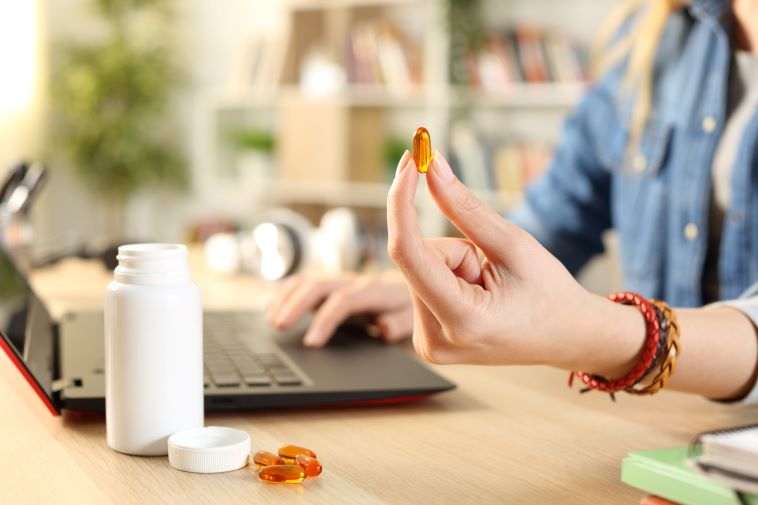Six of the best supplements for focus & concentration at uni
Let’s face it, university is far from cheap, tuition fees and rental costs and increased levels of debt mean that we’re certain you want to get the very best out of your degree… and this means giving yourself every opportunity to study at your maximum potential.
With the return (or start) of university just around the corner, now is the best time to stock up on those supplements that are going to give you the focus and cognitive ‘edge’ you need to hit the ground running.
In this article we have outlined six of the best ‘nootropics’, these are supplements which help support cognitive function.
1. Ginkgo Biloba
Ginkgo Biloba (GB) is one of the most popular supplements. Some research into GB has also shown some really promising results.
In the elderly, Ginkgo Biloba can help cognitive function, and some of GB’s positive effects on mental and physical health across other populations might be caused through its ability to promote better quality sleep and associations with improved perceptions of calmness. This may make it very useful in and around stressful exam periods. In some studies, there is also an improvement in cognitive function in memory tasks, with less mistakes being made with the use of GB.
To improve brain function, Ginkgo Biloba should be taken in doses of around 120-240mg a few hours before an exam and alongside a meal to help improve absorption.
2. Acetyl L-Carnitine
Acetyl L-Carnitine, more commonly referred to as ALCAR, is another popular nootropic supplement.
ALCAR works to improve the function of neurons through the production of the neurotransmitter acetylcholine, allowing more efficient transmission of signals, as well as offering protective effects to neurons (nerve cells) against damage.
ALCAR is much more easily absorbed than other forms of carnitine, so is deemed to be more effective. Doses of around 2-3g per day have been used in studies to cause the positive effects outlined above.
3. Choline Bitartrate
Much like ALCAR, Choline Bitartrate (CB) provides some of the raw materials to produce our most abundant neurotransmitter (chemicals that allow signals to be passed from one cell to another) acetylcholine. CB, as you might already suspect, provides the choline part of the equation, then through the magic of enzymes is converted into acetylcholine.
Too large a dose can cause headaches, so the best approach to using Choline Bitrate is to start at around 200mg per day, then build slowly to assess tolerance. Doses of up to 2g per day have been used for acute brain-boosting effects.
4. Tyrosine
Tyrosine is another very popular and effective nootropic supplement. L-tyrosine is an amino acid commonly found in high protein foods such as meat, dairy and even nuts and seeds.
Tyrosine is important in the production of two other of our main neurotransmitters, dopamine and adrenaline, as well as other hormones which help to regulate energy expenditure.
To get the positive effects of tyrosine it should be taken around one hour before the onset of our stress (like before an exam), at a dose of around 100-150mg per kg of body weight, so for a 70kg person, this would be around 7-10.5g.
5. DMAE
DMAE is a supplement that has demonstrated some effects in increasing amounts of our beloved neurotransmitter acetylcholine.
DMAE may also act in some situations as an antioxidant, helping to protect against the effects of environmental stress.
Doses of DMAE Bitartrate are suggested to be in the region of 500mg per day and is best taken over a few months to get the most possible benefit.
6. Phosphatidylserine
Last but certainly not least on our list of nootropic supplements is phosphatidylserine (PS). PS is a compound that can be created in the body and has similar structural properties as dietary fat. Like dietary fat, we can consume PS in the diet, it is mostly found in meat and animal organs like liver, however, these amounts are typically very small, so to really bump up PS levels supplementation is often required.
Recommended doses for improvements in cognitive performance are in the region of 300-800mg per day.
Summary
Collectively, supplements that boost brain power are known as ‘nootropics’ and there is certainly a solid amount of evidence to suggest that they can be of benefit for reducing stress and improving cognitive performance.
Which ones are the most effective tends to be very individual in nature, so a little trial and error might be required in terms of the supplement and dose and indeed some people like to combine different supplements to find their brain-boosting sweet spot.
Related articles
Looking to learn more? We believe that every person, with support, has the right to transform their lives through fitness. That’s why we’ve put together hundreds of articles with expert advice, all to help you on your fitness journey.
5 Supplements to Survive Freshers Different types of Protein Snacks
How to Boost your Immune System Health Heroes: 4 Great Products
Benefits of Mushroom Supplements Protein Chocolate vs Regular Chocolate
Benefits of Ashwagandha Benefits of a Complete Food Shake
Introducing Essential Whey Protein What is the 1™ Complete Food Shake?
Best Supplements for Students










